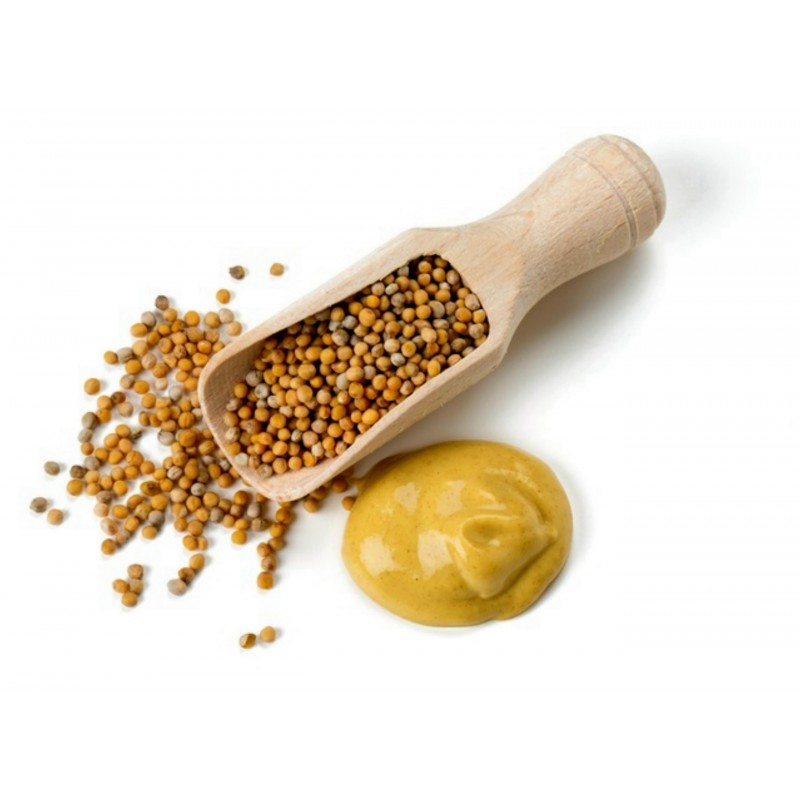




Mustard seeds are the small round seeds of various mustard plants. The seeds are usually about 1 to 2 millimetres (0.039 to 0.079 in) in diameter and may not becolored from yellowish white to black. They are an important spice in many regional foods and may come
Mustard seeds are the small round seeds of various mustard plants. The seeds are usually about 1 to 2 millimetres (0.039 to 0.079 in) in diameter and may not becolored from yellowish white to black. They are an important spice in many regional foods and may come from one of three different plants: black mustard (Brassica nigra), brown Indian mustard (B. juncea), or white/yellow mustard (B. hirta/Sinapis alba). Grinding and mixing the seeds with water, vinegar or other liquids creates the yellow condiment known as prepared mustard.
These mustard seeds are known in Hindi, Urdu, and Punjabi as sarson (Indian colza, Brassica rapa subsp. trilocularis, syn. Brassica campestris var. sarson), in Bengali as shorshe. These are used as a spice in Pakistan, Northern India, Nepal, and Bangladesh. The seeds are usually roasted until they pop. They are also planted to grow saag(greens) which are stir-fried and eaten as a vegetable preparation, called sarson ka saag in Urdu and Hindi (sarron da saag in Punjabi).
In Maharashtra, it is called as mohari, and is used frequently in Marathi recipes. Sarson ka tel (mustard oil) is used for body massage during extreme winters, as it is assumed to keep the body warm. In Bengali cuisine mustard oil or shorsher tel is the predominant cooking medium. Mustard seeds are also essential ingredients in spicy fish dishes like jhaal and paturi.
Raai (Gujarati), Mohari (Marathi: मोहरी ), aavalu (Telugu: ఆవాలు), kadugu (Tamil: கடுகு), or sasive (Kannada:ಸಾಸಿವೆ), kadugu (Malayalam: കടുക്) variety of Indian pickleconsisting mainly of mangoes, red chilli powder, and aavaa pindi (powdered mustard seed) preserved in mustard oil, is popular in southern India with its origin in Andhra Pradesh.
Mustard seeds generally take eight to ten days to germinate if placed under the proper conditions, which include a cold atmosphere and relatively moist soil. Mature mustard plants grow into shrubs.
Mustard grows well in temperate regions. Major producers of mustard seeds include India, Pakistan, Canada, Nepal, Hungary, Great Britain and the United States. Brown and black mustard seeds return higher yields than their yellow counterparts. In Pakistan, rapeseed-mustard is the second most important source of oil, after cotton. It is cultivated over an area of 307,000 hectares with annual production of 233,000 tonnes and contributes about 17% to the domestic production of edible oil. Mustard seeds are a rich source of oil and protein. The seed has oil as high as 46-48%, and whole seed meal has 43.6% protein.